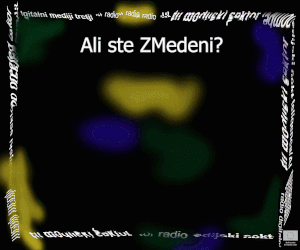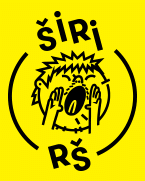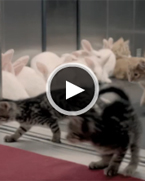Diskurzivni program RKHV: Black Metal Theory Symposium - I. dan, 2. del
Adin Crnkić - »Crimes of Capital, Crimes of the State«*: Red and Anarchist Black Metal and its impact
The focus of this paper is the new wave of far-left ideology within the black metal genre which is known as red and anarchist black metal (RABM). RABM is a political philosophy of black metal in which the artists have various far-left and environmentalist ideologies such as anarchism, Marxism, communism, antifascism, and green anarchism. The first and most important common feature of RABM is its fierce critique of the capitalist society. Hence, a revolution is high on RABM’s agenda. RABM is not widely covered or even mentioned in many black metal theory symposiums and articles. B. Noys and E.C. Williams come closest to producing a radical view of black metal ideology in their theory. While the former argued that »black metal objectively, in its aesthetic, forms a utopian and immanent critique of the misery of neo-liberal capitalism«, the latter proposed that »black metal has no individuals, and it has no leaders«. The first goal of this paper is to introduce the main ideology and politics of the genre. Next, I would like to methodologically examine the lyrics of genre representatives which promote particular utopian visions for change. I argue that while RABM is marginalized within the black metal community, it must be taken into consideration as one of the most promising subgenres with anticapitalist themes after punk.
* The title is derived from an EP by Black Kronstadt, one of the earliest representatives of RABM.
Adin Crnkić is a political scientist and independent researcher.
Jasna Babić - 'Too Old and Too Cold': Black Metal and Contemporal Subcultural Theory
While many metal subgenres and hybrids have made their way into the mainstream, black metal maintains a marginal status despite the popularity of certain world-famous music performers and groups. Black metal is one of the few genres - both in metal music and in general - that succeeded in wrapping the musical expression in a particular concept, incorporating it into a specific ideology, forming a set of values and setting non-formal, but no less binding rules. Due to its turbulent history, black metal is one of the most dramatic and obscure cultural phenomena, which is still reflected nowadays in a divided relationship between fans of the genre and often stereotypical perceptions by external observers. In the following paper, I will focus on the various cultural (and political) forms of black metal, its aesthetics, the ambivalence between emphasized individualism and collective identity, issues of authenticity and entitlement. I will try to present its multiface in the context of contemporary subcultural theory while preserving the wider historical context of its origin, development and present manifestations.
Jasna Babić, AM in sociology, is employed at the Peace Institute in Ljubljana. She is mainly interested in topic related to alternative culture and marginal social practices. She is an author of the book In the whirlwind of subcultures and a co-author (together with Dunja Danial) of the documentary film Rejects of second generation - Following the traces of punk. She also organizes concerts and other cultural activities. She spends most of her spare time in AKC Metelkova mesto, especially in Klub Gromka.
Matej Trontelj - Analyses of Themes of Misogyny and Racism in Music of Type O Negative
Type O Negative or ''drab four'', as they were nicknamed in reference to the famous ''fab four'' monicker of The Beatles, was a gothic/doom metal band based in Brooklyn, US that was most famous for its self-deprecating humour and a passive-aggressive stance towards an optimistic outlook on life. Although they publicly distanced themselves from any political stance, their musical and lyrical repertoire seems to uncover much more complex positions on love, society and existential setting. The band were accused of spouting misogynistic, homophobic and racist messages on numerous occasions, but they also gained a loyal cult following in their 20 years of regular touring and recording, until the untimely death of the lead singer Peter Steele. My theoretical approach to the music of Type O Negative shall take seriously into consideration their mocking attitude towards some of the more important societal issues today. I will try to argue that their lyrical content represents a sort of class conflict (or general militant spirit) not only in the sphere of music, but also in relation to the most important concepts of psychoanalytic theory: the themes of sexual difference, subjectivation and on the other hand, that of racial struggle over a supposedly privileged phallic center of society and thus, the exercise of political and economic power. I will then try to show that these themes in the band’s musical repertoire seem to slide through a sort of transfer and counter-transfer on less serious topics of self-deprecation and humour, functioning as a means of (complex if not imaginary) identification with the band while encouraging the listener to reflect on their own positions.
Matej Trontelj is a student of Philosophy at Faculty of Arts at University of Ljubljana.

















Prikaži Komentarje
Komentiraj